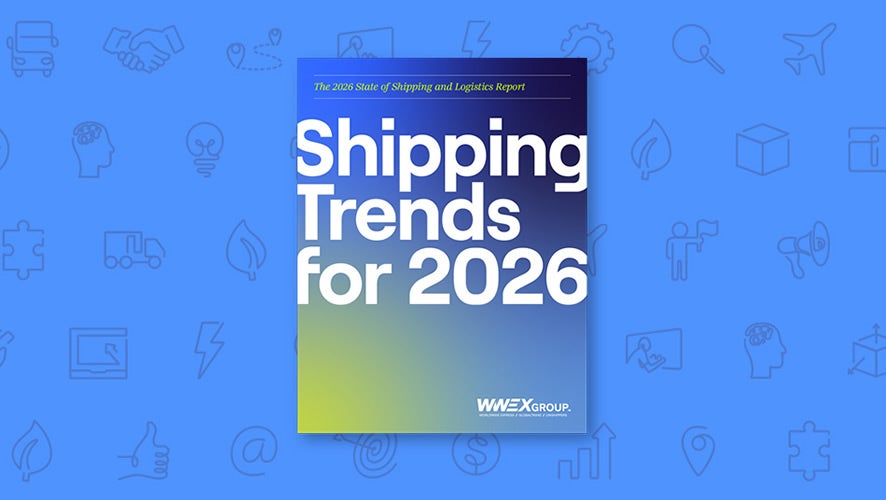BLOG POST
The Purpose of a Bill of Lading: Why Accuracy Matters

Reading Time: 5 minutes
Picture this: you've prepared a valuable shipment for pickup and have confidently filled out your bill of lading (BOL) only for your shipment to be delivered to the wrong address, costing you time and money. It's easy to overlook a small detail on a BOL, especially when so many are required and even more if you do blind shipping. And in shipping, that small detail can have a big impact on your bottom line. Need more help? A trusted third-party logistics (3PL) provider like Worldwide Express can help ensure your BOLs are filled out accurately the first time for all your freight shipments, allowing you to rest easy.
What is a bill of lading?
A bill of lading is a legally binding contract between a shipper and a carrier that includes all the details, measurements and special considerations for a less-than-truckload (LTL) freight or full truckload (FTL) freight shipment. BOLs can either be in a paper or electronic format and are one of the most important documents for any shipment.
The bill of lading is often confused with a freight bill, but they are actually different documents. Since a shipping BOL is legally binding, it is important to ensure that it is filled out entirely and accurately - missing or incorrect information can cost you in fees and surcharges. Pay close attention to the tips below to ensure smoother BOL shipping.
How do I correctly complete a bill of lading?
The short answer? Accurately. Unfortunately, there is no standard BOL that you can fill out the same way every time - each will vary by carrier and by the type of commodity being shipped. But be mindful of the key details common to most shipping BOLs listed below and remember, accuracy matters!
Physical attributes of your shipment
Quantity - Enter the correct number of pallets or containers.
Description - Enter an accurate size for each pallet or container. Carriers use this information to calculate how much space the shipment will take up in the truck's cargo hold, and subsequently, when creating a final invoice.
Dimensions - Measure the length, weight and height of your shipment, including the pallet or container, to find its dimensions in cubic inches. If your shipment is irregularly shaped, take the measurements at its longest points.
Weight - Use a freight scale to get an accurate weight measurement. If the shipment's weight is miscalculated, you could potentially face reweigh fees. Make sure to ask the carrier ahead of time if they have size or weight limitations for extra-large shipments.
Packaging - Utilize packing materials that are light in weight to cut costs but that also offer maximum protection to avoid unexpected damage in transit. Some carriers even require you to use specific packaging to help keep your shipment safe throughout transit and delivery. These carriers could assess extra fees if shipments aren't suitably protected for shipping, or if the container isn't stackable or takes up excess cargo space.
Freight class and NMFC code - An NMFC code is assigned based on the shipment commodity, and its freight class is determined by also factoring in the shipment's density, stowability, handling and liability. If either the NMFC code or the freight class is determined or entered incorrectly, you may incur a reclassification fee and the rates themselves can increase. Make sure to calculate your freight class correctly with our freight density calculator.
Special considerations for your shipment
Special transport or delivery instructions - Include any special instructions you'd like the carrier to know about the shipment. This will help the carrier understand how best to take care of your shipment throughout transit.
Fragile or perishable goods - Note if the commodity being shipped needs to be kept within a specific temperature range. This will let the carrier know that the driver should check the shipment's temperature during its transit, add ice or find overnight refrigerated storage, if necessary.
Hazardous materials - Use a detailed description of your commodity and note if it includes any hazardous or potentially dangerous materials. For these shipments, you'll need to select a carrier who is permitted to move hazardous goods, utilize a specific hazmat BOL, include proper handling instructions and provide the driver with all the appropriate paperwork.
Drop-off specifics - Include specific details regarding when and where the shipment is to be delivered. It's important to include any specifics about the drop-off location, like for residential delivery or if a lift gate will be needed, and a drop-off window or business schedule. Don't forget to note whether a signature is required for delivery.
What happens if my bill of lading is incorrect or incomplete?
The purpose of a bill of lading is to make sure the shipper, carrier, driver and customer are all on the same page and each has access to the details of a specific shipment. If any information is incorrect or the BOL is missing details, your shipment may be affected in a variety of ways:
- The shipment may accrue additional fees due to a reweigh or reclassification.
- The shipment may be delivered to an incorrect address or person, resulting in additional time and costs for redelivery.
- The shipment may be denied by the consignee if the wrong number of pallets or packages is listed.
- The shipment may be refused by the carrier if potentially dangerous goods are not properly labeled or marked.
- The driver may not request a delivery confirmation signature for a valuable shipment if it is not noted.
- Perishable goods may spoil if handling specifics are not included.
- Insurance or liability claims may be lost or denied if the BOL has incorrect or missing details.
Get BOL Shipping Support from a Trusted 3PL
When filling out a shipping bill of lading, accuracy is crucial to ensure proper and timely delivery with no surprise fees. And with small mistakes so easy to make or overlook, working with a trusted 3PL partner like Worldwide Express can help ensure each BOL is done right the first time! From helping you determine your shipment's freight class to finding you an optimal carrier, Worldwide Express has shipping solutions and best-in-class support you need to keep your business on track.

